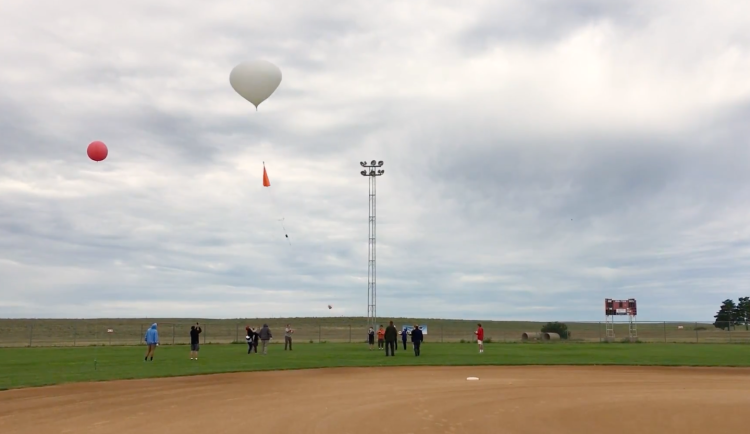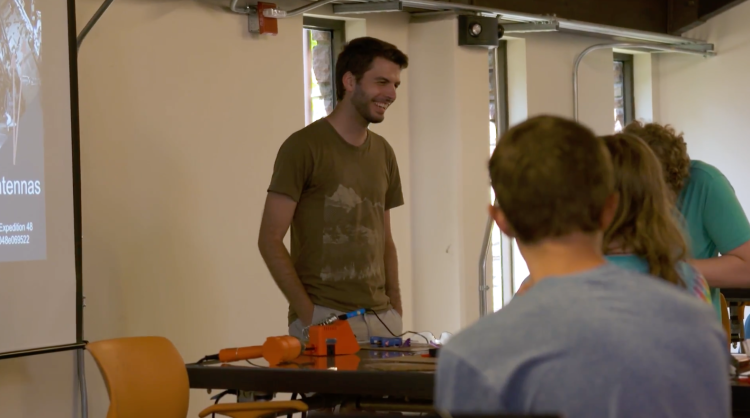Young engineers aim for the stratosphere at Science Discovery camp

On a recent summer morning in a baseball field near Limon, Colorado, CU Boulder engineer and PhD student Viliam Klein helped a group of Front Range-area high school students prepare to launch a high-altitude balloon.
The test flight was the result of a week’s worth of hands-on STEM education for the students through one of the university’s Science Discovery summer camps, and the excitement was palpable. If successful, the camera-equipped balloon would ascend over 100,000 feet into Earth’s stratosphere, providing stunning images from the very edge of outer space.
Hands-on engineering experience can be rare to non-existent inside the classroom for many high schoolers, but the nine students in the “Mission to the Edge of Space” program got exactly that this year with a helping hand from Klein, who attended Science Discovery summer camps himself years ago and credits the program with sparking his love of engineering.
“[It’s] the kind of bug that gets stuck in your brain, the result of building something and then having a rewarding experience where it actually flies,” he said.
Earlier in the week, Klein—who is now an aerospace engineering researcher at CU Boulder working on GPS systems for the International Space Station—had stopped by the Idea Forge, a collaborative workspace in the Fleming building on CU Boulder’s main campus. There, the students had been hard at work on their flight project, their tables filled with the hallmarks of creativity: circuit boards, springs, pliers and a multi-colored assortment of wires.

PhD student Viliam Klein speaks to Science Discovery participants in the Idea Forge at CU Boulder. Photo: Alana Murphy
The students enthusiastically peppered Klein with questions about the logistical challenges of sending cameras up on a high-altitude balloon: Should the balloon ascend faster to preserve more battery life? Will the camera heat up too much because of its black casing? The opportunity to interview a successful engineer was not about to pass them by.
Klein provided helpful advice to the group and later accompanied them to their Saturday launch date. He plans to perform a similar balloon experiment himself during the total solar eclipse on Aug. 21 by sending a 360-degree camera up to the stratosphere in order to film the eclipse’s shadow spreading across the Earth.
The students’ hands-on STEM education experience is typical of the hundreds of Science Discovery camps offered on campus each summer across a variety of scientific disciplines. Since 1983, the programs have provided wide-ranging ways to engage with CU Boulder students, faculty and equipment, offering sessions that pick up where the classroom might leave off.
“We are consistently trying to stay on the cutting edge of STEM education and leveraging the resources here at the university to bring these opportunities to students,” said Brian Jernigan, director of summer STEM programs at CU Boulder.
For his part, Klein is happy to have come full circle and be a part of an ongoing tradition.
“It’s exciting to me that I’m getting to the point in my career where I can start giving back and inspire the next generation,” he said.
Learn more about CU Boulder Science Discovery camps.
[video:www.youtube.com/watch?v=ibtZbup-T9s&feature=youtu.be]


